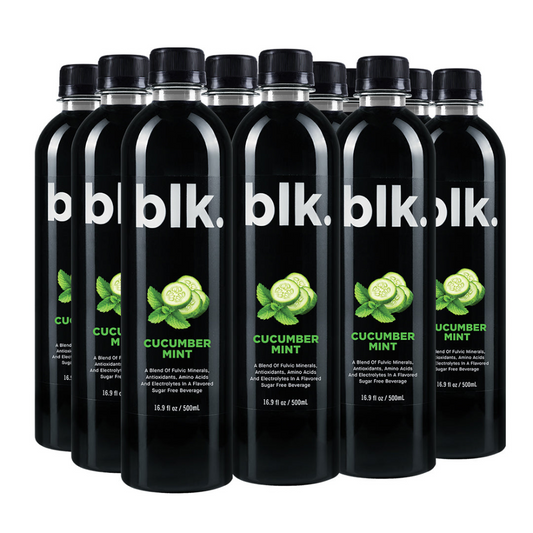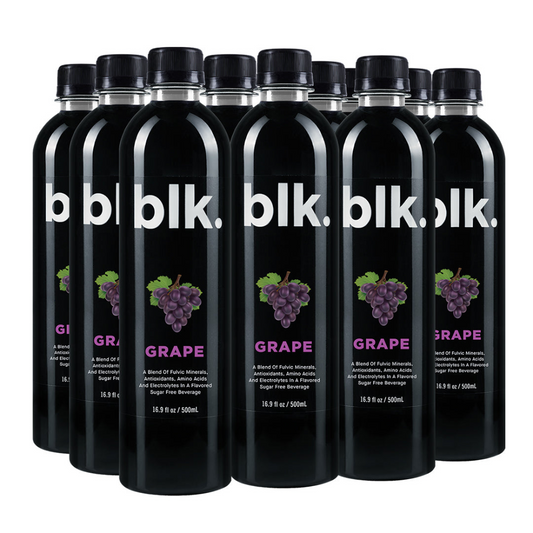
Optimizing Recovery With Beef Protein Powder After Intense Workouts
This Article Will Guide On:
- What beef protein powder is
- How beef protein powder helps in muscle recovery
- Comparison between beef protein powder and whey protein powder
- How to use beef protein powder for muscle recovery
- Safety and precautions when using beef protein powder
Proteins are essential for workouts, especially for those looking to gain muscle. However, protein is also suitable for those looking for other achievements besides muscle gain, such as muscle recovery after an intense workout.
Engaging in hardcore workouts for a long time is an intense workout and usually leaves you tired and sore. However, this soreness is reduced when our muscles start repairing. Taking proteins after a hardcore workout can help with muscle repair and recovery. Previous studies indicate that post-workout protein supplements support muscle synthesis.
Muscle protein synthesis refers to the process through which muscles and bones in the body heal. Beef protein powders are a rich source of animal-based protein. With high protein content, beef fosters muscle protein synthesis; thus, beef protein powder has the potential to help in quick muscle recovery after an intense workout.
Further in this blog, Ripped.com, US leading health supplements store discuss how beef protein powder accelerates recovery after an intense workout. We also explain the science and role of amino acids in muscle synthesis for a better understanding of how beef protein powder should be consumed. We have also highlighted the top beef protein powder products in 2023. Keep reading!
What is Beef Protein Powder?
Beef protein powder is an animal-based protein supplement obtained from beef in powdered form that can be mixed with water or other beverages. The extraction of beef protein powder process involves boiling chunks of beef to obtain the resultant liquid rich in protein and amino acids. This liquid is skimmed to remove most of the fat. The remainder substance is then spray-dried to form beef protein powder.
Beef protein powder is new but attracting popularity at a high rate. It is essential for those who follow a paleo diet or have food sensitivities. Similarly, beef protein powder is most preferably the best alternative for you if you are sensitive to whey protein or casein protein. Beef protein powder has a high protein content and is highly likely to help muscle gain, muscle recovery, and endurance.
Forms of Beef Protein Powder
Beef Isolate Protein Powder
Beef isolate powder is made by boiling beef in large vats to create a liquid that contains amino acids and protein. The liquid is then skimmed to remove traces of fats and carbohydrates, resulting in a high protein concentration substance. This substance is beef protein isolate powder.
Hydrolyzed Beef Protein Powder
Hydrolyzed beef protein powder is made from the breakdown of beef protein into component amino acids. It has a white-yellow powder appearance. Hydrolyzed beef protein powder production includes boiling a strong base or acid or using an enzyme to stimulate the naturally occurring hydrolytic process. Hydrolyzed beef protein powder has a rapid absorption rate.
Beef Protein Powder vs. Whey Protein Powder: Which is the Best?
Undoubtedly, beef protein powder has a high protein content. A good quality beef protein powder of 30g will give you 26-28g of protein, whereas whey protein powder will give you only 19-24g.
Another factor used to rank proteins is their amino acid composition and digestibility. Beef protein powder has a digestibility score of 0.92, whereas whey protein powder has a digestibility score of 1. This score makes beef protein powder the best whey protein powder alternative.
Glycine is produced in the body and is thus not an essential amino acid. Excess glycine can have a synergistic effect with creatine. This is prevalent in beef since glycine supports creatine metabolism. Since beef has 19 times the amount of glycine to whey, it is perfect for muscle strength and growth.
On the downside, in workouts and general health, the amount of protein one consumes does not matter; what matters is the amount of leucine in the protein consumed. Leucine is an amino acid that triggers muscle protein synthesis. Muscle protein synthesis is how bones and muscles heal, especially after an intense workout.
Whey protein powder contains almost thrice the amount of leucine available in every 100 gm beef protein powder.
Another factor that pulls beef protein powder down the grade is its source. Beef protein powder is made from beef which comes from animals. Whatever the animals eat determines the beef quality to the effect that poor animal feeds may lead to poor beef quality.
In this vein, experts recommend using beef from grass-fed animals to make beef protein powder. In any case, the manufacturers use poor beef or other animal parts with poor protein content to make beef protein powder; the powder would highly likely be of poor quality.
On the other hand, whey protein powder is made from milk. Although milk quality may also be altered, but is not very easy to do, and the effects would still be positive compared to beef.
The bottom line, however, is that most people are shifting from whey to beef protein powder to minimize skin reactions. Beef protein powder is also the best alternative for people who suffer from dairy allergies and those looking for high-quality protein powder.
The Science Behind Beef Protein Powder and Recovery
Muscle cells are broken down during workouts due to intense, recurrent muscle contractions. Muscle recovery is, therefore very, essential after intense workouts. The amino acids in beef protein powder act like the building blocks for your body. Therefore, supplementing with beef protein powder helps improve muscle protein synthesis after an intense workout, which helps muscle repair and rebuild.
Protein Synthesis and Muscle Recovery
To understand muscle protein synthesis, it is essential to understand what muscle damage is. Muscle protein breakdown is the breakage of muscle fibers, causing inflammation and swelling in the muscle due to repetitive muscle contractions during workouts. Some muscle soreness accompanies muscle breakdown and pain, referred to as delayed onset muscle soreness.
After muscle protein breakdown, a repair and rebuild mechanism follows; the muscle protein synthesis. This refers to the process through which protein is produced to rebuild and enhance the growth of the damaged and existing muscle fibers.
Muscle recovery requires muscle tissue repair and the growth of damaged muscle fibers. It is important to note that an exercise-induced micro-injury must occur for muscle protein synthesis. Muscle protein synthesis requires adequate amino acids obtained from protein sources. This is where beef protein powder comes in. Beef protein powder is a complete protein obtained from whole food and has the total amino acids required by the body for muscle protein synthesis.
The Role of Amino Acids in Muscle Recovery
Amino acids are the body's building blocks. They are responsible for repairing and rebuilding the damaged muscle fibers. There are several types of amino acids, all with essential perks; several studies have indicated the amino acid leucine to be very effective in muscle recovery. Together with insulin, the two are very effective in muscle recovery.
A previous study indicated Leucine stimulates skeletal muscle protein synthesis recovery after an exercise. Another study revealed that Leucine and insulin allow skeletal muscle to coordinate protein synthesis with dietary intake and physiological state.
The Impact of Protein Timing on Muscle Recovery
For optimal results, workout enthusiasts and experts have revealed a strategy for Protein timing to obtain maximum results from intense workouts. Protein timing involves taking protein around a training period to support muscular repair and rebuild that enhances post-workout strength and adaptations associated with hypertrophy.
A previous study suggests that protein intake did not have much effect on muscle strength outcomes, especially for untrained individuals. However, it also concluded that hypertrophic perks evident during the studies were due to the increased protein intake.
Benefits of Bovine Collagen in Beef
Bovine collagen indirectly play a role in overall muscle health. Beef protein powder does contain some collagen that helps in building an extracellular matrix (ECM), or network of proteins and other molecules surrounding muscle cells. ECM maintains the integrity and elasticity of muscle tissue and supports the process of muscle growth and repair.
How to Use Beef Protein Powder for Optimal Recovery
Recommended Dosage of Beef Protein Powder for Optimal Recovery
Beef protein powder dosage depends on the brand you are using. However, most serving suggestions of beef protein powder range between 20g to 28g. Experts suggest that this is the optimal amount of protein required for muscle protein synthesis that aids in repairing damaged muscle fibers after an intense workout. The Dietary Reference Intake for protein is 0.36 grams of protein per pound which translates to 0.8 grams per kilogram of your body weight in a day. As a general rule, it is recommended that one takes between 20-40 grams of protein in every meal.
Your body needs proteins the most after a workout to aid in muscle protein synthesis; therefore, the best time to take beef protein powder is after training. In whatever form you decide to take your beef protein powder, whether as a smoothie, or a shake, it is recommended that you take it, preferably no later than 30 minutes after a workout.
Best Ways to Use Beef Protein Powder for Recovery
Protein supplements such as protein powder are essential for post-workout recovery. Suppose you supplement with protein powder for muscle recovery; you should go for one with a complete nutritional profile to get almost all the nutritional benefits from your supplement.
You should use beef protein powder directly after training to help muscle recovery. However, it is essential to note that it would help to take beef protein powder with a carbohydrate source for optimal results. You may also mix the beef protein powder with milk or eat fruit. This is because the body needs refueling after training, especially after an intense workout.
The body requires rehydration after an intense workout, which is why you should consider drinking some water as you take the beef protein powder. You can also make a shake by mixing your beef protein powder with some water.
An advantage of beef protein powder is that it blends well. Beef protein powder may be blended into a smoothie. Now, the hack is to find ingredients that complement the flavor of beef protein powder; with that, your smoothie will be so perfect that no one will easily detect the beef protein powder in it. Beef protein powder as a smoothie is very convenient for those on the go. It is also great for people who are `picky eaters`.
You should not use beef protein powder as a meal replacement. Whole protein-rich foods have more minerals and take longer to digest, meaning you will feel full for extended periods. However, protein powders, including beef protein powder, are considered `predigested` and are easily digested because you will feel hungry a lot faster. The bottom line is that beef protein powder is best used as a supplement instead of a meal replacement.
Safety and Side Effects of Beef Protein Powder
Potential Side Effects of Beef Protein Powder
Generally, protein powder, including beef protein powder, is not bad for use. However, cautioning yourself while using protein powder would be best. For instance, you should not use beef protein powder if you have beef allergies.
How to Choose the Right Beef Protein Powder for You
Several brands offer beef protein powder; as a result, it may be too burdensome to choose the suitable beef protein powder for your needs. In that regard, below are a few things that you should consider as you prepare to purchase beef protein powder.
Read the Label Carefully
Before you purchase beef protein powder, you must know its ingredients. Ingredient composition, and specific supplement facts, such as whether the protein powder is gluten-free or not, are always found on the product label. Ensure that you read the label carefully to ascertain that the supplement has the right ingredients.
Third-Party Testing
Although the Food and Drug Administration (FDA) is mandated to regulate dietary supplements, manufacturers are responsible for ensuring their products' safety, labeling, and effectiveness. Some dietary supplement labels may always contain wrong information with the effect that the beef protein powder has harmful substances or ingredients. For instance, some beef protein powders have been found to have chicken, soy protein, etc.
It is, therefore, important to check the supplement labels for certifications from authorized third-party organizations such as ConsumerLab, Banned Substances Control Group, USP, and NSF International's Certified for Sport.
Consider the Serving Size
Beef protein powder is not bad for use; however, too much of it could cause minor side effects. To avoid that, it is best to look at the serving size of the supplement you plan to purchase. The best beef protein powder should contain 20-30 grams per scoop. Anything below or beyond could either be ineffective or harmful respectively.
Top Beef Protein Powder Products 2023
- Musclemeds: Carnivor Chocolate Peanut Butter 28 Servings
- Musclemeds: Carnivor Chocolate Peanut Butter 56 Servings
- Musclemeds: Carnivor Strawberry 56 Servings
- Musclemeds: Carnivor Vanilla Caramel 28 Servings
Conclusion
Beef protein powder is an animal-based protein supplement with high-protein content. This supplement is best used for post-workout recovery due to its ability to trigger muscle protein synthesis, the process through which damaged muscle fibers caused by repetitive muscle contractions during training are repaired.
Frequently Asked Questions
-
How does beef protein powder affect muscle recovery compared to other protein sources?
-
Does the timing of consuming beef protein powder affect muscle recovery?
-
Can Beef Protein Powder reduce muscle soreness after an intense workout?
-
What is the optimal time to consume beef protein powder for muscle recovery?
-
How much beef protein powder should I consume for muscle recovery?




